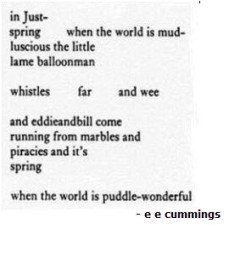Its been sometime since I published this blog. Mind you, not for lack of thoughts and ideas I was willing to share, but more due to the discovery that my blog was likely being monitored by litigants with an interest in generating inferences where none were intended. I have decided to blog again, this time influenced, to a greater or lesser extent, by a recognition that it might be read by a more diverse spectrum of readers than I had originally anticipated.
You might think, don’t all writers, especially those who publicly publish their work expect to be observed? And do not authors expect to have their writings criticized? All that is true, but at least this former trial lawyer oftentimes tempers speech through a courtroom lens. On a fairly regular basis I query myself: “How would this sound in a trial transcript?” Or, “What kind of cross examination would this comment generate? And, “How would I rebut the inferences from this or that remark?”
Familiar with how words may come to haunt someone, many people, I think, reach a point where commentary is more and more measured– mindful of how one’s words might be construed in an entirely unrelated context, years from when they were originally uttered. At work is a sort of personal iteration of the “observation effect” alluded to by quantum scientists–considering what one wants to say (the particle), observing the two slits ahead (what you mean and what someone else might construe you to mean) and the “interference”–your inner voice modifying the words and modifying the thought process that generated them–resulting in the original thought differently (and more safely) expressed.
a point where commentary is more and more measured– mindful of how one’s words might be construed in an entirely unrelated context, years from when they were originally uttered. At work is a sort of personal iteration of the “observation effect” alluded to by quantum scientists–considering what one wants to say (the particle), observing the two slits ahead (what you mean and what someone else might construe you to mean) and the “interference”–your inner voice modifying the words and modifying the thought process that generated them–resulting in the original thought differently (and more safely) expressed.
Politicians engage in this process fairly regularly. And, those politicos who don’t, probably should. When I read my grandfather’s travel diaries, he often “broke the fourth wall” and addressed the next generation of readers directly with comments like, “Your grandmother looked beautiful tonight.” His descriptives were careful and measured, in a way one might not expect of a “diary.” He was masterful at filtering. Now, nearly thirty years later, his words, so carefully constructed, are what is left for the next generation who barely knew him, if at all.
My own return to blogging was spurred by a reader who recently reached out hoping that the failure to post this last year was not due to any misfortune. So touched was I, that I decided to resume writing, with some modest filtering.
But, I wonder whether in this age of fact-checking and instant and meticulous googling, coupled with fear of not-filtering, will we lose grasp of the genuine? Will the process of change, growth and progress be inhibited by the apprehension that one’s unfiltered words will return to haunt them?
Will we not be able to trace a writer’s or public speaker’s transitions of thought over time, as we do the evolution of the artist or composer? Will the time come when we all filter, out of necessity, abandoning the spontaneous and mud-luscious in this puddle-
wonderful world?
I am reminded of what a senior judge once counseled when I could not overcome opposing counsel’s recurring objection to my leading examination of a witness: “Say this, ‘And then what…'”?
Happy Vernal Equinox. Glad to be back.

Nice to see you back. Please keep it up. 🙂